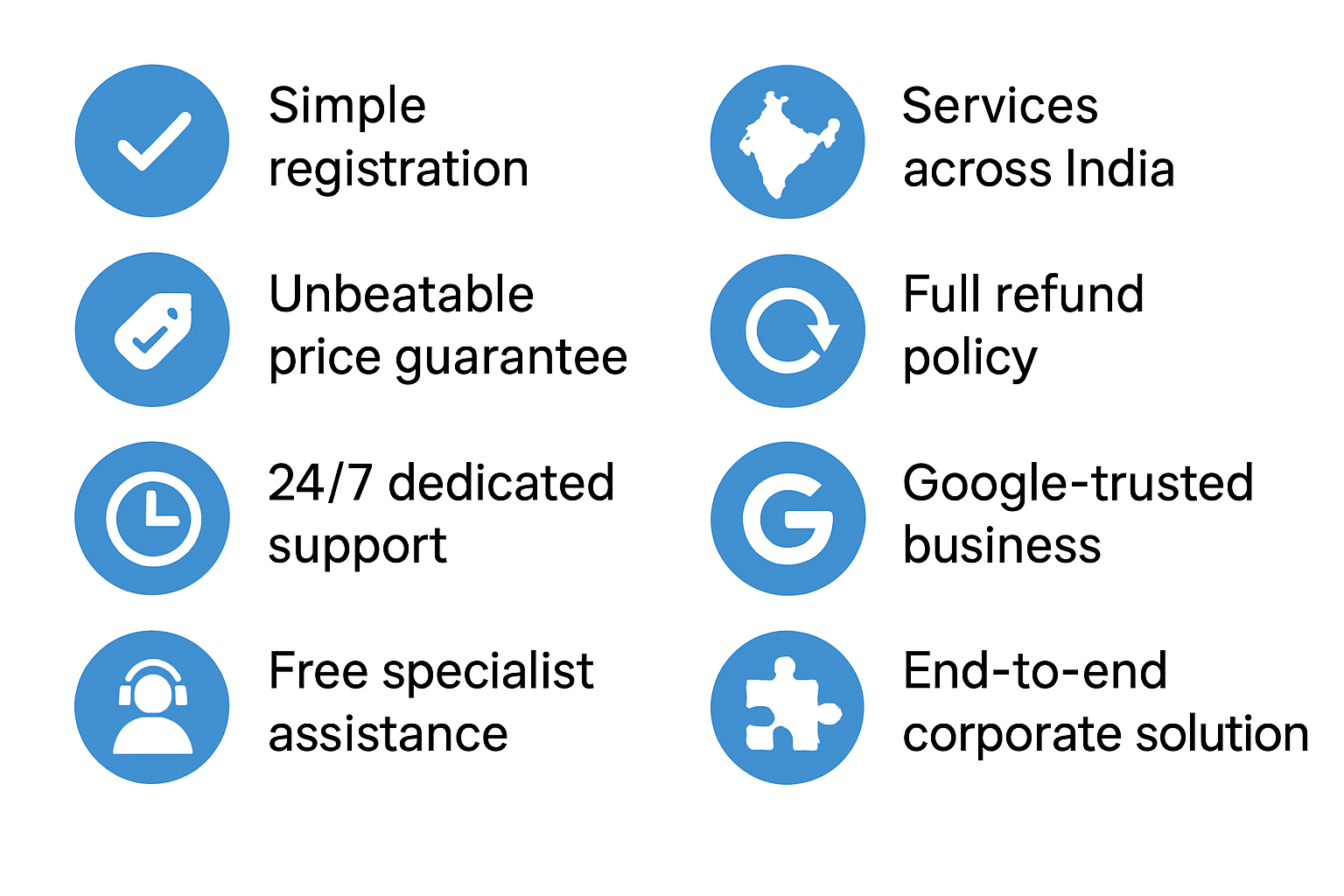Complete Guide to APEDA Online Registration – Process, Documents, and Charges
APEDA Registration is an essential certificate for Indian importers and exporters aiming to access global markets in the agricultural and processed food sectors. APEDA, which stands for the Agricultural and Processed Food Products Export Development Authority, represents not just regulatory compliance but also unlocks a wide range of incentives and opportunities tailored to boost exports and accelerate business growth. In today’s global market that increasingly prioritizes organic, authentic, and diverse food products, securing APEDA Registration is a crucial advantage for Indian exporters.
Established under the APEDA Act of 1985, APEDA’s primary role is to regulate and issue registration certificates to manufacturers and merchant exporters of scheduled products listed under the Act. The authority was created to promote the export of agricultural products and support exporters in expanding their business operations. Additionally, APEDA provides exporters with financial assistance and guidelines aimed at enhancing product quality and standards. This page offers a comprehensive guide on the APEDA License Registration process, including required documents, fees, renewal procedures, validity, and more.
APEDA Registration Process
APEDA Registration, also referred to as the Registration-Cum-Membership Certificate (RCMC), is issued by the Agricultural and Processed Food Products Export Development Authority (APEDA). It is a mandatory certification for exporters who deal in scheduled food products covered under the APEDA Act. Without obtaining this registration, businesses are not permitted to commence export activities for the notified products. The RCMC serves as an official recognition from APEDA, enabling exporters to legally operate and benefit from various export promotion schemes and support offered by the authority..
Process of APEDA Certification
- Promotes the export of scheduled food products in the global market
- Issues registration certificates to exporters of scheduled products
- Supports the development of industries involved in the export of scheduled food products
- Regulates and monitors quality standards and specifications for export compliance
- Enhances packaging and marketing practices to improve international reach
- Conducts training programs to build expertise among exporters and industry members
- Showcases Indian food products by participating in international food festivals
Scheduled Food Products under the APEDA Act
First Schedule:
Fruits, vegetables, and products derived from them
Meat and meat products
Poultry and poultry products
Dairy products
All kinds of chocolates, cocoa, and their products
Basmati rice
Documents Required For APEDA Registration
Copy of the Import-Export Code (IEC) issued by the Directorate General of Foreign Trade (DGFT)
Bank certificate or a signed letter from the bank confirming the business account details
Cancelled cheque of the bank account
GST registration certificate
Duly filled and signed APEDA registration application form
Central FSSAI Registration certificate
DIS/SIA certificate issued by the Department of Horticulture (applicable for certain food products under APEDA)
Certificate of Incorporation or business registration proof
No Objection Certificate (NOC) from the Pollution Control Board
MSME certificate (if applicable)
Halal certificate (if applicable)
Procedure for APEDA Registration
The Registration-Cum-Membership Certificate (RCMC) is issued to exporters subject to following the procedures. Issuance of RCMC has been made online, and exporters are required to fill out the application form and submit their documents online.
The step-by-step procedure of APEDA registration is as follows:
 Step -1 online Application:To apply for an RCMC certificate, sign in through the APEDA portal and click on the register as member tab. Fill in all the mandatory details like the ICE code, Email address, and mobile number. An OTP (One-Time-Password) will be provided to you on your mobile number and email for verification.
Step -1 online Application:To apply for an RCMC certificate, sign in through the APEDA portal and click on the register as member tab. Fill in all the mandatory details like the ICE code, Email address, and mobile number. An OTP (One-Time-Password) will be provided to you on your mobile number and email for verification.- Step -2 Documentation:After OTP verification, exporters must fill out a mandatory application form with all requested details and upload all required documents for APEDA Registration. applicants can save and edit their form as often as they want before submitting APEDA registration fees.
- Step -3 Submission of Fee:Submit your registration fee after completing the application form. then an application number will be provided. You can use this application number to track the status of your RCMC application until its issued.
- Step -4 Issuance of certification:The RCMC certificate will be issued within 10-15 days after successfully to the APEDA portal. Applicants can download their certificate using the login ID and password provided by APEDA on your registered mobile number and email.
APEDA Registration Fees
Validity and Renewal of APEDA Registration
The Registration-Cum-Membership Certificate (APEDA Registration) is valid for a period of 5 years. The RCMC license is auto-renewed every 5 years. Once the registration fee is paid, no further documents or additional submissions are required.
Cancellation of APEDA (RCMC) Registration
If an exporter, registered to conduct the export of scheduled food products, fails to carry out business for 12 consecutive months, the APEDA Registration shall be revoked as per Section 11 of the APEDA Act.
If the certificate has been obtained by furnishing false or incorrect information, the APEDA Authority will cancel such registration.
Any person found violating the rules and regulations of the Act shall have their registration canceled as per the prescribed guidelines.
Limitation of APEDA Certificate
Access to Government Schemes: Registered (RCMC) members can avail benefits under various schemes initiated by APEDA for the promotion of food products, such as:
Agriculture and Processed Food Export Promotion Scheme
Food Processing Fund of NABARD
Kisan Sampada Yojana
Infrastructure Development Support: Assistance in creating and improving infrastructure for export.
Exporter Directory Listing: Registered members are included as permanent members of APEDA’s exporter directory.
Brand Building and Promotion: APEDA supports brand value creation and promotion in global markets.
Training and Development: Members can participate in specialized training programs organized by APEDA for different scheduled products.
Export Guidelines & Market Information: Provides exporters with updated guidelines and insights about various food products and international markets.
Non-compliance under APEDA Act
- Any individual who violates or attempts to contravene the provisions established under this act shall be subject to punishment, which may include imprisonment for a term of up to six months or a monetary penalty of Rs. 1,000, in accordance with the prescribed regulations. In the case of repeated violations, an additional fine of Rs. 50 per day shall be imposed, commencing from the date of the initial offence and continuing until the date of conviction. Where the offence is committed by a company, every person who was responsible for the management of the company at the time of the offence shall be held liable, alongside the company, and will be subject to corresponding penalties.
Online APEDA Registration with Monitrix
It is frequently emphasized that a key component of the “Make in India” initiative should be “Bake in India,” highlighting the importance of value addition through processed agricultural products. The APEDA registration process involves multiple steps and requires thorough legal and procedural knowledge. Seeking assistance from experts can simplify and streamline the APEDA application process. With our support, you can complete your RCMC application in just three easy steps.
Step 1:
Complete our quick online form, and our experts will contact you for a personalized consultation.
Step 2:
Submit the required documents along with a 50% initial payment to initiate your application.
Step 3:
Your registration will be completed promptly, after which you can finalize the remaining payment.

Why Monitrix?
At Monitrix, we leverage our industry knowledge and expertise to help businesses navigate complex regulations, minimize risks, and optimize operations for maximum efficiency and profitability.
![]() Office Address
Office Address










